 W
WAcademic Torrents is a website which enables the sharing of research data using the BitTorrent protocol. The site was founded in November 2013, and is a project of the Institute for Reproducible Research. The project is said to be similar to LOCKSS but with a focus on "offering researchers the opportunity to distribute the hosting of their papers and datasets to authors and readers, providing easy access to scholarly works and simultaneously backing them up on computers around the world"
 W
WAluka was an online digital library focusing on materials about Africa. Aluka's mission is to connect scholars from around the world by building a common platform that allows online collaboration and knowledge sharing. Aluka's audience is higher education and research communities worldwide.
 W
WarXiv is an open-access repository of electronic preprints and postprints approved for posting after moderation, but not peer review. It consists of scientific papers in the fields of mathematics, physics, astronomy, electrical engineering, computer science, quantitative biology, statistics, mathematical finance and economics, which can be accessed online. In many fields of mathematics and physics, almost all scientific papers are self-archived on the arXiv repository before publication in a peer-reviewed journal. Some publishers also grant permission for authors to archive the peer-reviewed postprint. Begun on August 14, 1991, arXiv.org passed the half-million-article milestone on October 3, 2008, and had hit a million by the end of 2014. As of April 2021, the submission rate is about 16,000 articles per month.
 W
WThe Baldwin Library of Historical Children's Literature in the Department of Special and Area Studies Collections at the University of Florida's George A. Smathers Libraries contains more than 130,000 books and serials published in Great Britain and the United States from the mid-17th century through the present. Its holdings of more than 800 early American imprints is the second largest such collection in the United States. The product of Ruth Baldwin's 40-year collection development efforts, this vast assemblage of literature printed primarily for children offers an equally vast territory of topics for the researcher to explore: education and upbringing, family and gender roles, civic values, racial, religious, and moral attitudes, literary style and format, and the arts of illustration and book design.
 W
WThe University of Puerto Rico, Río Piedras Campus, is a public research university in Rio Piedras, San Juan, Puerto Rico. It is the largest campus of the University of Puerto Rico system in terms of student population, and it was Puerto Rico's first public university campus.
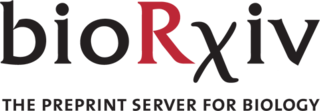 W
WbioRxiv is an open access preprint repository for the biological sciences co-founded by John Inglis and Richard Sever in November 2013. It is hosted by the Cold Spring Harbor Laboratory (CSHL). As preprints, papers hosted on bioRxiv are not peer-reviewed, but undergo basic screening and checked against plagiarism. Readers may offer comments on the preprint. It was inspired by and intends to complement the arXiv repository, which mostly focuses on mathematics, physics and connected disciplines, launched in 1991 by Paul Ginsparg. It received support from both the CSHL and the Lourie Foundation. Additional funding from the Chan Zuckerberg Initiative was confirmed in April 2017.
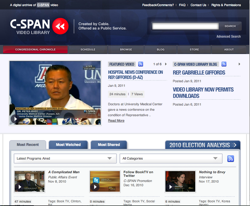 W
WC-SPAN Video Library is the audio and video streaming website of C-SPAN, the American legislative broadcaster. The site offers a complete, freely accessible archive going back to 1987. It was launched in March 2010, and was integrated into the main C-SPAN website in 2013.
 W
WCalifornia Ethnic and Multicultural Archives (CEMA) is an archival institution that houses collections of primary source documents from the history of minority ethnic groups in California. The documents, which include manuscripts, slide photographs, newspaper clippings, works of art, journals, film, sound recordings, and other ephemera, are housed in the special collections department of the UCSB Libraries at the University of California, Santa Barbara, where they are made accessible to researchers upon request. An effort is currently underway to make certain documents available online through the Online Archive of California.
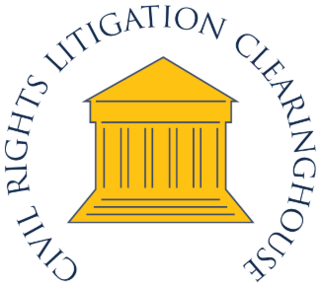 W
WThe Civil Rights Litigation Clearinghouse is a website that serves as a searchable resource for information and documents relating to civil rights litigation. The Clearinghouse was founded by law professor Margo Schlanger in 2005, at Washington University in St. Louis, and moved in 2009 to the University of Michigan.
 W
WThe Cuneiform Digital Library Initiative (CDLI) is an international digital library project aimed at putting text and images of an estimated 500,000 recovered cuneiform tablets created from between roughly 3350 BC and the end of the pre-Christian era online. Directors of the project are Robert K. Englund from University of California, Los Angeles and Jürgen Renn of the Max Planck Institute for the History of Science. Co-principal investigators are Jacob Dahl at Oxford University, Bertrand Lafront at the Centre national de la recherche scientifique, Nanterre and Émilie Pagé-Perron, University of Toronto. Preceding leadership comprised co-director Peter Damerow (1939-2011) from the Max Planck Institute for the History of Science and Pennsylvania Sumerian Dictionary leader Stephen J. Tinney who was co-principal investigator. In 2004 Englund received the Richard W. Lyman Award from the National Humanities Center for his work on the initiative.
 W
WD-Scribe Digital Publishing is an open access electronic publishing program of the University Library System (ULS) of the University of Pittsburgh. It comprises over 100 thematic collections that together contain over 100,000 digital objects. This content, most of which is available through open access, includes both digitized versions of materials from the collections of the University of Pittsburgh and other local institutions as well as original 'born-electronic' content actively contributed by scholars worldwide. D-Scribe includes such items as photographs, maps, books, journal articles, dissertations, government documents, and technical reports, along with over 745 previously out-of-print titles published by the University of Pittsburgh Press. The digital publishing efforts of the University Library System began in 1998 and have won praise for their innovation from the leadership at the Association of Research Libraries and peer institutions.
 W
WThe Darlington Collection is extensive collection of rare documents, maps, and other historical material focusing on early American history, particularly that of Western Pennsylvania. The original material is housed by the Archives Services Center (ASC) of the library of the University of Pittsburgh with digitized material available at the Darlington Digital Library. The collection was inherited by Darlington's daughters Mary O'Hara Darlington and Edith Darlington. The donation of the collection was first given to the University of Pittsburgh in 1918. The rest of the collection was donated in 1925.
 W
WThe David Rumsey Historical Map Collection is one of the world's largest private map collections. It has over 150,000 maps and cartographic items. The collection was created by David Rumsey who, after making his fortune in real estate, focused initially on collecting 18th- and 19th century maps of North and South America, as this era "saw the rise of modern cartography."
 W
WThe Digital Library Federation (DLF) is a program of the Council on Library and Information Resources (CLIR) that brings together a consortium of college and university libraries, public libraries, museums, and related institutions with the stated mission of "advanc[ing] research, learning, social justice, and the public good through digital library technologies." It was formed in 1995.
 W
WDigital Maryland, formerly Maryland Digital Cultural Heritage (MDCH), is a collaborative, statewide digitization program. Headquartered at the Enoch Pratt Free Library/State Library Resource Center in Baltimore, the program partners with Maryland libraries, archives, historical societies, museums, and other institutions to digitize and provide free online access to materials relating to the state's history and culture. Materials in Digital Maryland's online digital collections include maps, manuscripts, photographs, artwork, books, and other media.
 W
WThe Digital Public Library of America (DPLA) is a US project aimed at providing public access to digital holdings in order to create a large-scale public digital library. It officially launched on April 18, 2013, after 2.5 years of development.
 W
WThe University of North Carolina at Chapel Hill is a public research university in Chapel Hill, North Carolina. The flagship of the University of North Carolina system, it is considered to be a Public Ivy, or a public institution which offers an academic experience similar to that of an Ivy League university. After being chartered in 1789, the university first began enrolling students in 1795, making it one of the oldest public universities in the United States. Among the claimants, the University of North Carolina at Chapel Hill is the only one to have held classes and graduated students as a public university in the eighteenth century.
 W
WEBSCO Information Services, headquartered in Ipswich, Massachusetts, is a division of EBSCO Industries Inc., a private company headquartered in Birmingham, Alabama. EBSCO provides products and services to libraries of very many types around the world. Its products include EBSCONET, a complete e-resource management system, and EBSCOhost, which supplies a fee-based online research service with 375 full-text databases, a collection of 600,000-plus ebooks, subject indexes, point-of-care medical references, and an array of historical digital archives. In 2010, EBSCO introduced its EBSCO Discovery Service (EDS) to institutions, which allows searches of a portfolio of journals and magazines.
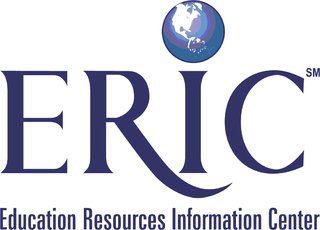 W
WThe Education Resources Information Center (ERIC) is an online digital library of education research and information. ERIC is sponsored by the Institute of Education Sciences of the United States Department of Education.
 W
WThe eGranary Digital Library is a product of the WiderNet Project, a non-profit aimed at providing access to information technology and library services in developing countries.
 W
WErowid, also called Erowid Center, is a 501(c)(3) non-profit educational organization that provides information about psychoactive plants and chemicals.
 W
WEuroDocs: Online Sources for European History is a digital history portal that offers links to online facsimiles, transcriptions, and translations of European primary historical sources. The sponsoring organization is the Harold B. Lee Library at Brigham Young University, where it was begun in 1995 by Richard Hacken, European Studies Bibliographer.
 W
WThe Florida Digital Newspaper Library provides access to the news and history of Florida through local Florida newspapers. The Florida Digital Newspaper Library is supported by the University of Florida's George A. Smathers Libraries and hosted in the University of Florida Digital Collections funded partially by grants and sources, including Florida's Library Services and Technology Act (LSTA) Grants Program, the National Endowment for the Humanities' National Digital Newspaper Program, the Institute for Museum and Library Services, the University of Florida, by Florida Heritage Project funds from the University of North Florida and the University of South Florida, and with the assistance of digital library endowment from the Estate of the late Governor and Mrs. C. Farris Bryant.
 W
WGlobal Memory Net (GMNet) is a world digital library of cultural, historical, and heritage image collections. It is directed by Ching-chih Chen, Professor Emeritus of Simmons College, Boston, Massachusetts and supported by the National Science Foundation (NSF)'s International Digital Library Program (IDLP). The goal of GMNet is to provide a global collaborative network that provides universal access to educational resources to a worldwide audience. GMNet provides multilingual and multimedia content and retrieval, as well as links directly to major resources, such as OCLC, Internet Archive, Million Book Project, and Google.
 W
WHathiTrust Digital Library is a large-scale collaborative repository of digital content from research libraries including content digitized via Google Books and the Internet Archive digitization initiatives, as well as content digitized locally by libraries.
 W
WThe Hill Museum & Manuscript Library (HMML) is a non-profit organization located at and sponsored by Saint John's Abbey and University in Collegeville, Minnesota. HMML’s mission is to identify, digitally photograph, catalog, and archive the contents of manuscripts belonging to threatened communities and to make the copies available to users around the world through online catalogs.
 W
Wibiblio is a "collection of collections," and hosts a diverse range of publicly available information and open source content, including software, music, literature, art, history, science, politics, and cultural studies. As an "Internet librarianship," ibiblio is a digital library and archive project. It is run by the School of Information and Library Science and the School of Journalism and Mass Communication at the University of North Carolina at Chapel Hill, with partners including the Center for the Public Domain, IBM, and SourceForge. It also offers streaming audio radio stations. In November 1994 it started the first internet radio stream by rebroadcasting WXYC, the UNC student-run radio station. It also takes credit for the first non-commercial IPv6 / Internet2 radio stream. Unless otherwise specified, all material on ibiblio is assumed to be in the public domain.
 W
WInfoTrac is a family of full-text databases of content from academic journals and general magazines, of which the majority are targeted to the English-speaking North American market. As is typical of online proprietary databases, various forms of authentication are used to verify affiliation with subscribing academic, public, and school libraries. InfoTrac databases are published by Gale, a part of Cengage Learning.
 W
WThe Internet Archive is an American digital library with the stated mission of "universal access to all knowledge". It provides free public access to collections of digitized materials, including websites, software applications/games, music, movies/videos, moving images, and millions of books. In addition to its archiving function, the Archive is an activist organization, advocating a free and open Internet. As of April 2021, the Internet Archive holds over 30 million books and texts, 8.9 million movies, videos and TV shows, 649,000 software programs, 13,225,000 audio files, 3.8 million images, and 580 billion web pages in the Wayback Machine.
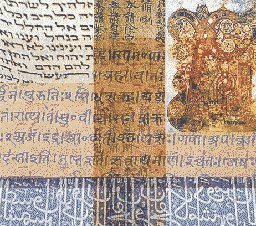 W
WThe Internet Sacred Text Archive (ISTA) is a Santa Cruz, California–based website dedicated to the preservation of electronic public domain texts, specifically those with significant cultural value. Works which fall into this category range from religious texts such as the Bible, the Qur'an, the Avestas, the I Ching, or the Vedas, to the classical literature of Virgil, Plato, or Sophocles, and on to the more contemporary works of Shakespeare, or the Brothers Grimm.
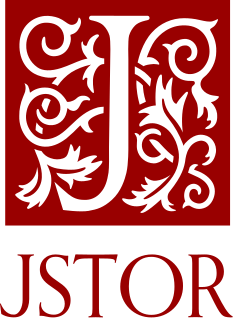 W
WJSTOR is a digital library founded in 1995 in New York City. Originally containing digitized back issues of academic journals, it now encompasses books and other primary sources as well as current issues of journals in the humanities and social sciences. It provides full-text searches of almost 2,000 journals.
 W
WThe Library of Congress National Digital Library Program (NDLP) is assembling a digital library of reproductions of primary source materials to support the study of the history and culture of the United States. Begun in 1995 after a five-year pilot project, the program began digitizing selected collections of Library of Congress archival materials that chronicle the nation's rich cultural heritage. In order to reproduce collections of books, pamphlets, motion pictures, manuscripts and sound recordings, the Library has created a wide array of digital entities: bitonal document images, grayscale and color pictorial images, digital video and audio, and searchable e-texts. To provide access to the reproductions, the project developed a range of descriptive elements: bibliographic records, finding aids, and introductory texts and programs, as well as indexing the full texts for certain types of content.
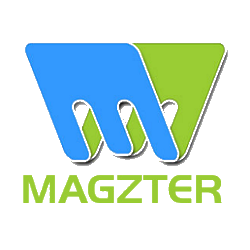 W
WMagzter is a cross-platform, self-service, global digital magazine newsstand with over 8,000 magazines from 3,400+ publishers. Girish Ramdas and Vijayakumar Radhakrishnan founded Magzter in 2011. The Company is headquartered in New York.
 W
WMarxists Internet Archive is a non-profit online encyclopedia that hosts a multilingual library of the works of communist, anarchist, and socialist writers, such as Karl Marx, Friedrich Engels, Vladimir Lenin, Leon Trotsky, Rosa Luxemburg, Mao Zedong, Mikhail Bakunin, and Pierre-Joseph Proudhon, as well as that of writers of related ideologies, and even unrelated ones. The collection is maintained by volunteers, and is based on a collection of documents that were distributed by email and newsgroups, later collected into a single gopher site in 1993. It contains over 180,000 documents from over 850 authors in 80 languages.
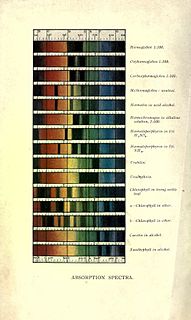 W
W W
WThe Internet Archive is an American digital library with the stated mission of "universal access to all knowledge". It provides free public access to collections of digitized materials, including websites, software applications/games, music, movies/videos, moving images, and millions of books. In addition to its archiving function, the Archive is an activist organization, advocating a free and open Internet. As of April 2021, the Internet Archive holds over 30 million books and texts, 8.9 million movies, videos and TV shows, 649,000 software programs, 13,225,000 audio files, 3.8 million images, and 580 billion web pages in the Wayback Machine.
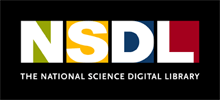 W
WThe United States' National Science Digital Library (NSDL) is an open-access online digital library and collaborative network of disciplinary and grade-level focused education providers. NSDL's mission is to provide quality digital learning collections to the science, technology, engineering, and mathematics (STEM) education community, both formal and informal, institutional and individual. NSDL's collections are refined by a network of STEM educational and disciplinary professionals. Their work is based on user data, disciplinary knowledge, and participation in the evolution of digital resources as major elements of effective STEM learning.
 W
WNew Advent is a website that provides online versions of various works connected with the Catholic Church.
 W
WThe New Jersey Digital Highway (NJDH) is a collaborative initiative led by cultural heritage institutions—including libraries, museums, archives, state agencies and other organizations—in New Jersey to provide online access to cultural and historical information about the state. The main participating institutions include Rutgers University Libraries, the New Jersey State Library, the New Jersey Department of Archives and Records Management, the Pietro and Maria Botto House, and the New Jersey Historical Society, with other institutions around the state providing additional collections.
 W
WThe Catalog of Digital Historical Newspapers (NewspaperCat) is a free online resource for open-access digitized historical newspapers published in North America and the Caribbean. NewspaperCat was developed from a grant by the George A. Smathers Libraries at the University of Florida and is powered by SobekCM, the content management system used by the University of Florida Digital Collections.
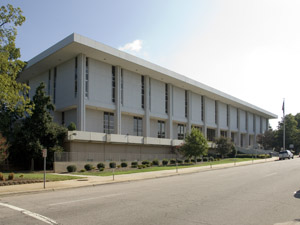 W
WThe State Library of North Carolina is an institution which serves North Carolina libraries, state government employees, genealogists, and the citizens of North Carolina. The library is the main depository for North Carolina state publications and serves the needs of North Carolina government agencies and state government employees by providing access to information resources that are vital to public decision-making and economic development.
 W
WThe University of North Carolina at Chapel Hill is a public research university in Chapel Hill, North Carolina. The flagship of the University of North Carolina system, it is considered to be a Public Ivy, or a public institution which offers an academic experience similar to that of an Ivy League university. After being chartered in 1789, the university first began enrolling students in 1795, making it one of the oldest public universities in the United States. Among the claimants, the University of North Carolina at Chapel Hill is the only one to have held classes and graduated students as a public university in the eighteenth century.
 W
WThe North Carolina Learning Object Repository (NCLOR) is a service offered by the North Carolina Community College System (NCCCS), that provides a central location to manage, collect, contribute, and share digital learning resources for use in traditional or distance learning environments. The NCLOR is available to all K-20 teachers across the state and provide vendor and peer resources for users. NCLOR participants include the 58 colleges from the North Carolina Community College System (NCCCS), University of North Carolina (UNC) System, North Carolina Independent Colleges and Universities, the North Carolina Department of Public Instruction (DPI), and North Carolina Virtual Public School (NCVPS).
 W
WOpen Library is an online project intended to create "one web page for every book ever published". Created by Aaron Swartz, Brewster Kahle, Alexis Rossi, Anand Chitipothu, and Rebecca Malamud, Open Library is a project of the Internet Archive, a nonprofit organization. It has been funded in part by grants from the California State Library and the Kahle/Austin Foundation. Open Library provides online digital copies in multiple formats, created from images of many public domain, out-of-print, and in-print books.
 W
WProject Gutenberg (PG) is a volunteer effort to digitize and archive cultural works, as well as to "encourage the creation and distribution of eBooks." It was founded in 1971 by American writer Michael S. Hart and is the oldest digital library. Most of the items in its collection are the full texts of books in the public domain. The Project tries to make these as free as possible, in long-lasting, open formats that can be used on almost any computer. As of 22 May 2021, Project Gutenberg had reached 65,405 items in its collection of free eBooks.
 W
WProject MUSE, a non-profit collaboration between libraries and publishers, is an online database of peer-reviewed academic journals and electronic books. Project MUSE contains digital humanities and social science content from over 250 university presses and scholarly societies around the world. It is an aggregator of digital versions of academic journals, all of which are free of digital rights management (DRM). It operates as a third-party acquisition service like EBSCO, JSTOR, OverDrive, and ProQuest.
 W
WQuestia was an online commercial digital repository of books and articles that had an academic orientation, with a particular emphasis on books and journal articles in the humanities and social sciences. All the text in all the Questia books and articles were available to subscribers; the site also included integrated research tools. As of December 21, 2020, it ceased operations.
 W
WSefaria is an online open source free content digital library of Jewish texts. It was founded in 2011 by former Google project manager Brett Lockspeiser and journalist-author Joshua Foer. Calling itself "a living library of Jewish texts", Sefaria relies on volunteers to add texts and translations. Hebrew, Aramaic, and Judeo-Arabic texts are provided under a free license in the original and in translation. The website also provides a tool for creating source sheets.
 W
Wtextfiles.com is a website dedicated to preserving the digital documents that contain the history of the bulletin board system (BBS) world and various subcultures, and thus providing "a glimpse into the history of writers and artists bound by the 128 characters that the American Standard Code for Information Interchange (ASCII) allowed them". The site categorizes and stores thousands of text files, primarily from the 1980s, but also contains some older files and some that were created well into the 1990s. A broad range of topics is presented, including anarchy, art, carding, computers, drugs, ezines, freemasonry, games, hacking, phreaking, politics, piracy, sex and UFOs. The site was created and is run by Jason Scott.
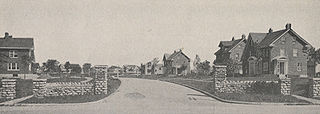 W
WThe UA Archives program provides access to materials related to the culture and history of Upper Arlington, Ohio, and is part of the Upper Arlington Public Library's digital library initiative. Free online access to these materials via the UA Archives website is provided in accordance with the Library's mission to help the community explore Upper Arlington's heritage and grow through a lifetime of learning.
 W
WThe UCSF Library is the library of the University of California, San Francisco. It is one of the world's foremost libraries in the health sciences.
 W
WThe University of Florida Digital Collections (UFDC) are supported by the University of Florida Digital Library Center in the George A. Smathers Libraries at the University of Florida. The University of Florida Digital Collections (UFDC) comprise a constantly growing collection of digital resources from the University of Florida's library collections as well as partner institutions. Founded in April 2006, UFDC has added over 622,114 items - books, newspapers, oral histories, videos, photos, data sets, and more - with over 14 million pages.
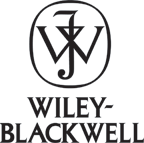 W
WWiley-Blackwell is an international scientific, technical, medical, and scholarly publishing business of John Wiley & Sons. It was formed by the merger of John Wiley & Sons Global Scientific, Technical, and Medical business with Blackwell Publishing in 2007.
 W
WThe William Blake Archive is a digital humanities project started in 1994, a first version of the website was launched in 1996. The project is sponsored by the Library of Congress and supported by the University of North Carolina at Chapel Hill and the University of Rochester. Inspired by the Rossetti Archive, the archive provides digital reproductions of the various works of William Blake, a prominent Romantic-period poet, artist, and engraver, alongside annotation, commentary and scholarly materials related to Blake.